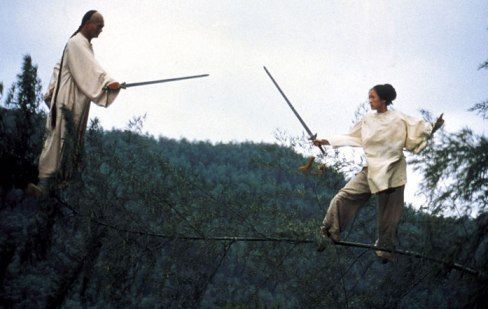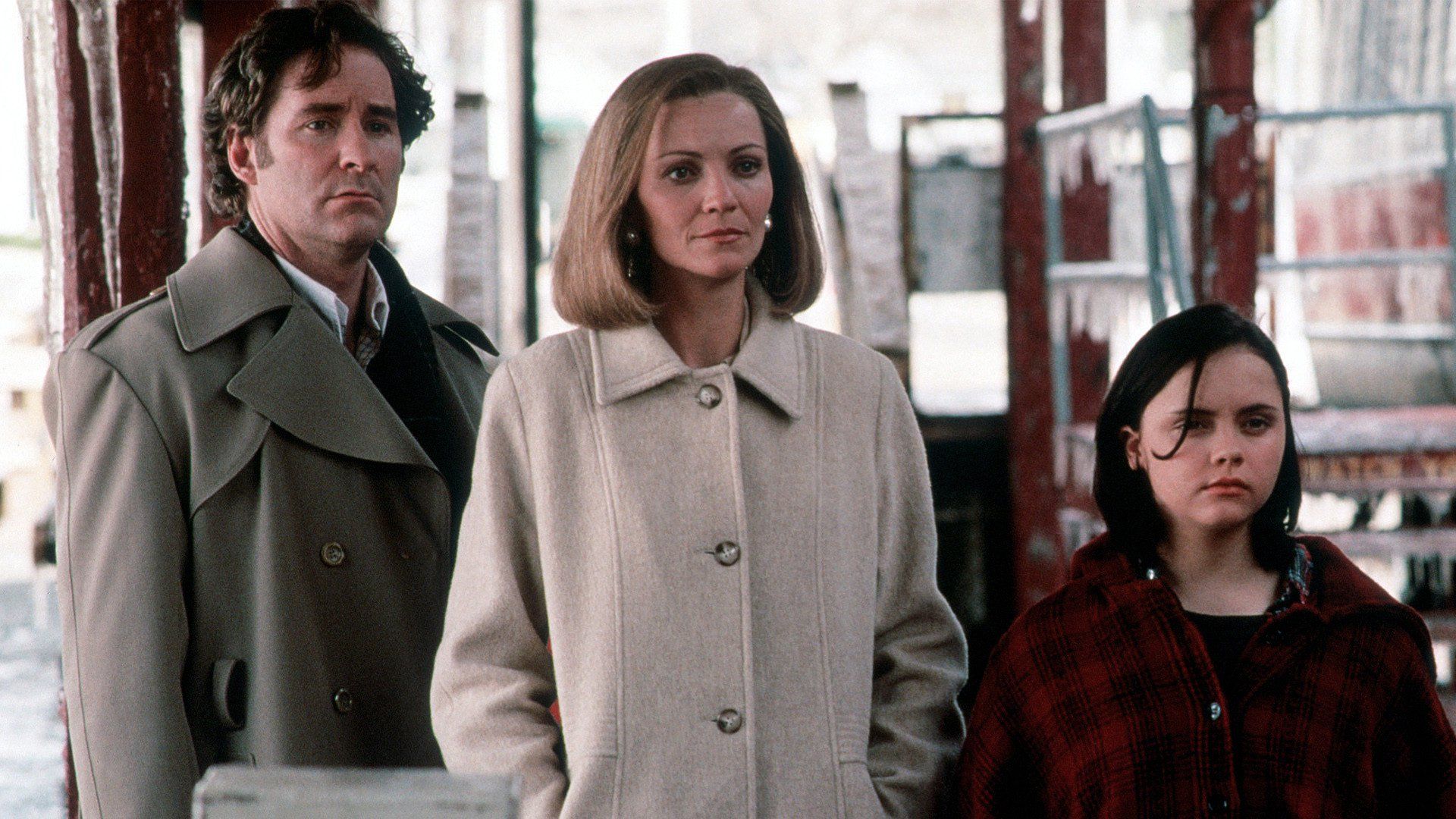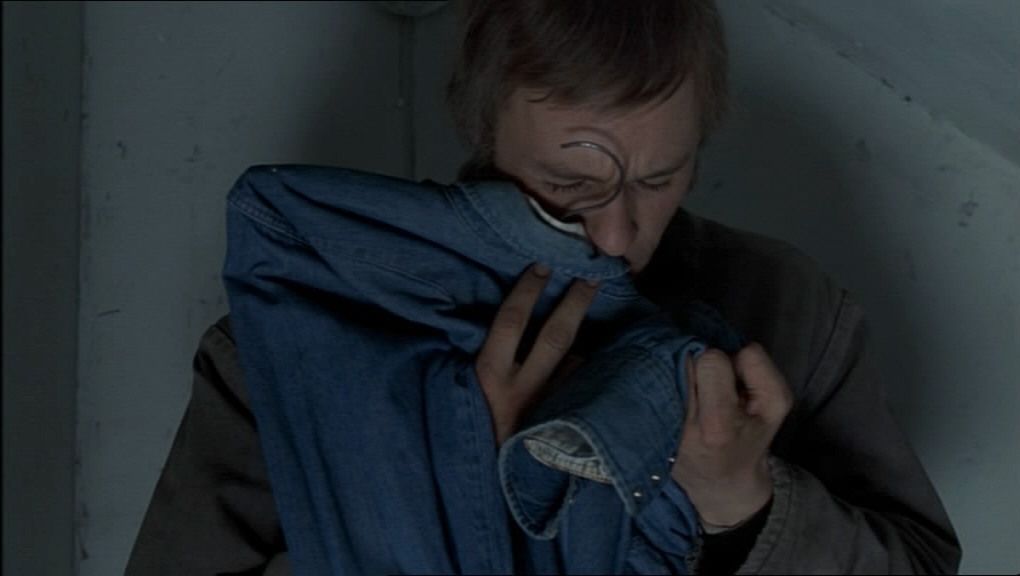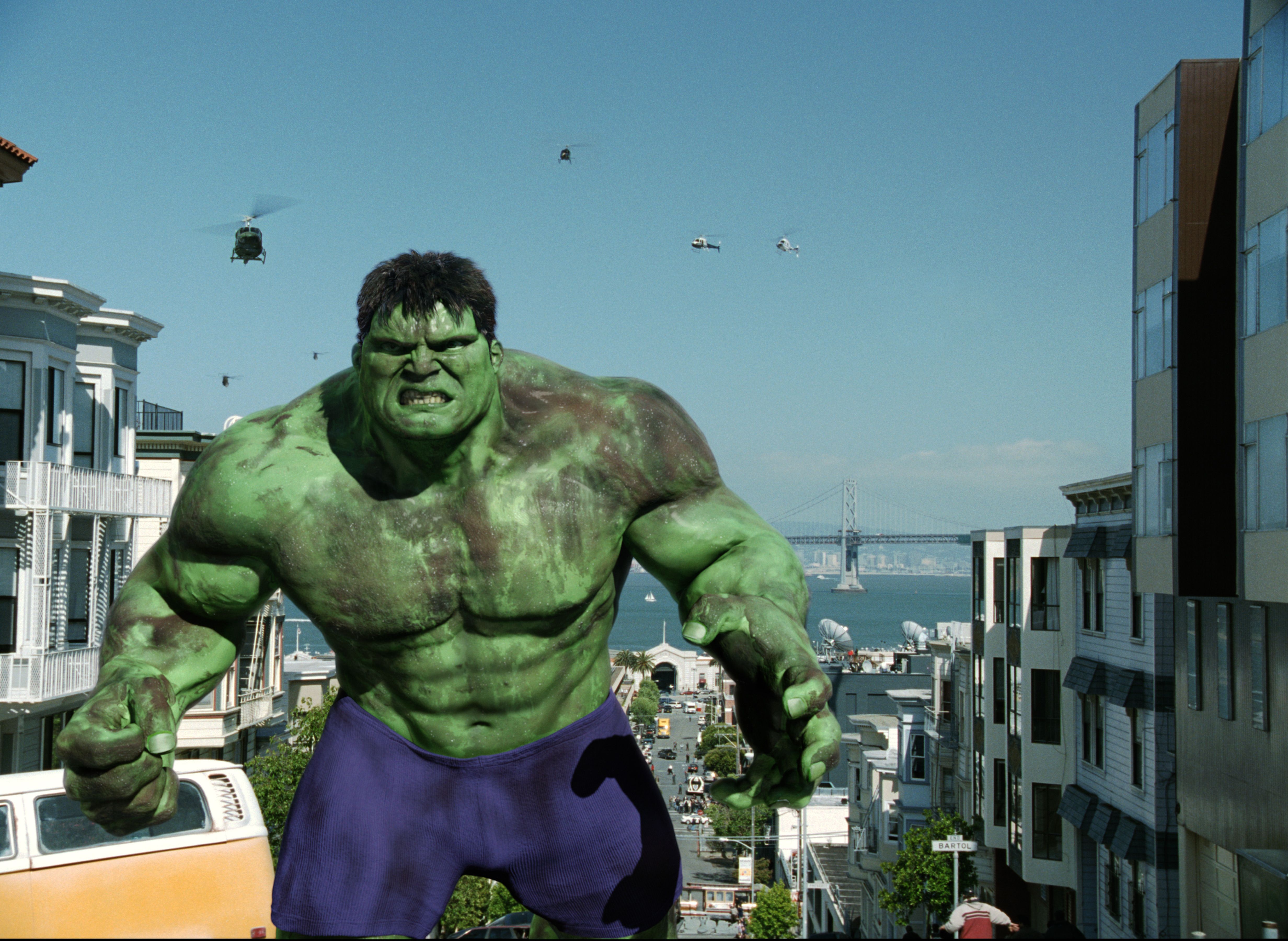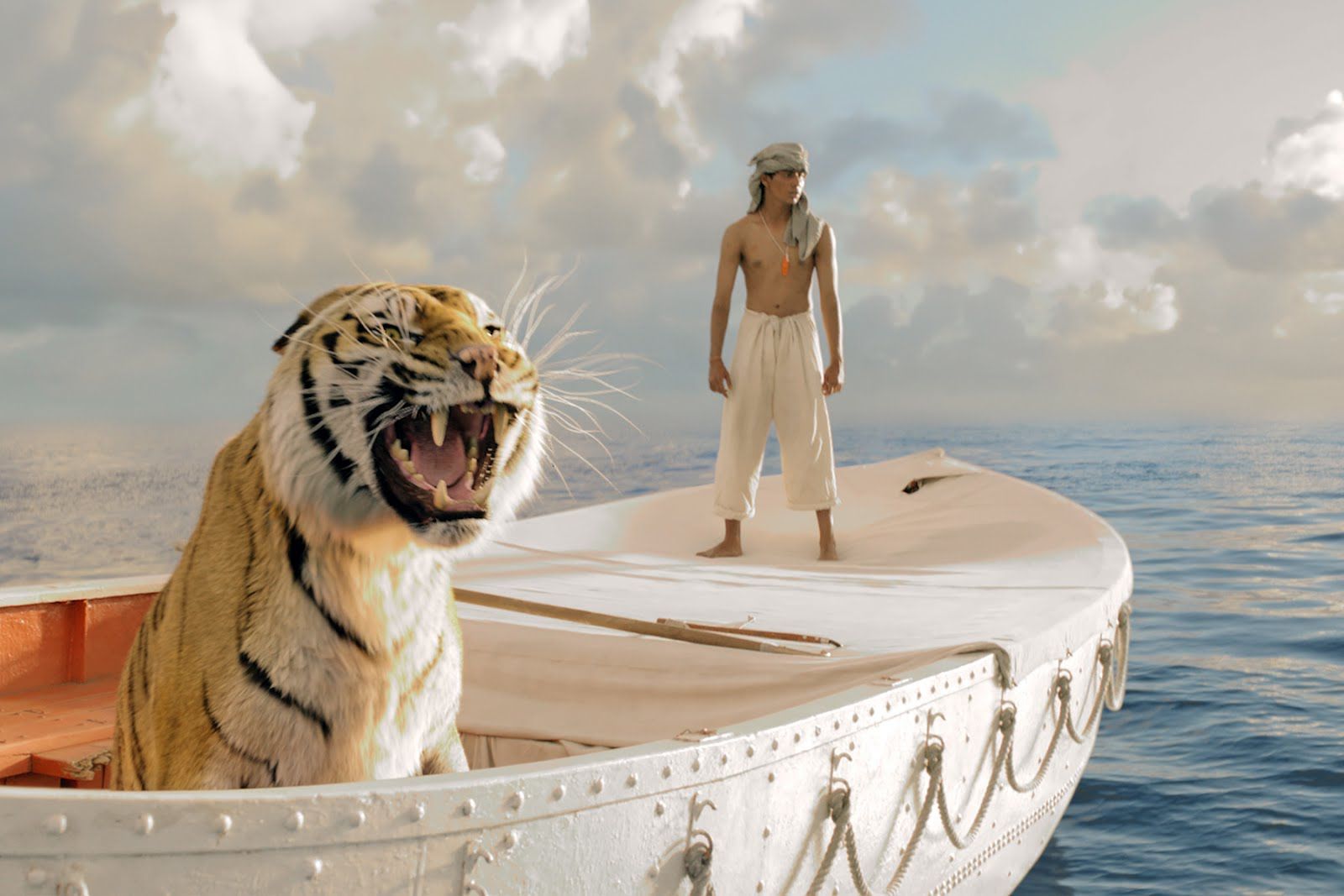Despite making one of the most (unjustly) ridiculed Marvel films to ever be released, it’s clear that Ang Lee understands more about the emotional struggle and strangeness of Marvel characters than almost any other director that’s been put behind the camera. His Hulk is messy, audacious, and easy to poke fun at because of its bolder, not-always-coherent visual and narrative ideas. And yet, the movie is genuinely personal, if not always personable in its narrative development, and the movie handles dark subject matter deftly where so many other superhero tales barely touch on the darker side of power. It’s implicit in how badly Marvel Studios has handled their villains on the whole – Corey Stoll’s Yellowjacket in Ant-Man and Guy Pearce’s Aldrich Killian in Iron Man 3 may be the exclusive exceptions to this.
Lee’s Hulk is about how one man handles grief in an extraordinarily expressive and hugely destructive way, an Oedipal reckoning writ large in wondrous, wild CGI explosions of color and pulsating light. And grief has been the primary concern of the director throughout his career, even in his more seemingly cheerful efforts. Death seems to hang over each of his narratives, whether in the form of the tragic sinking of the liner holding the titular character’s entire life in Life of Pi or the symbolic passages of Fantastic Four that open his magnum opus, The Ice Storm. And he’s become one of the great populist auteurs to explore how tragedy engenders not only maturity but also a rare kind of inventiveness, which seems to be Lee’s defining trope.
His best films are searching and progressive in imperfect yet sincere and imaginative ways, and a narrative tension that likely is a product of his close relationship with the great screenwriter Jim Schamus. Lee has directed every kind of movie, so it can occasionally be hard to keep track of what exactly is his movie if you haven’t become accustomed to his stylistic and narrative tropes.Here’s where you can start, but it should be noted that he’s one of those guys who speaks louder with his entire catalog than his individual triumphs.
Beginners: 'Crouching Tiger, Hidden Dragon'
A classic tale of love and vengeance in many ways, Crouching Tiger, Hidden Dragon nevertheless feels specifically about the sacrifices and triumphs of ambition. It’s easily the most elegant film the director has made but that’s not to say that the deep-sewn rivalries between a cadre of mythic fighters from the Qing Dynasty don’t leave their marks. The tragedy of wisdom coming late in life and the passion that fuels young ideology, and belief in devotional purpose, underline every battle in air, every intimate conversation, every unlikely relocation to a serene, seemingly endless desert or a temple of deep study and wisdom on a mountainside. Lee reckons with the conflicts that have built his homeland over the years but also indulges in the most thrilling aspect of the populist cinema of that same area, making this one of his most potently personal works.
The Ice Storm
One of my favorite images in any movie ever made is Joan Allen’s Elena Hood using an old-fashioned ice cube tray in The Ice Storm. It’s a type designed so there’s a lever that cracks the ice, and the multiple men and women, adults and children, faithful and debauched seem to be looking for that same proverbial lever in their day-to-day lives. It’s 1973 in New Canaan, CT and the Nixon era seems to be stuck like a glaze over everyone, and Lee gives the malaise just the right balance of wonder and bereavement. The mood is grim without being bleak, mordant without being fatalistic, and the cast, including Kevin Kline, Christina Ricci, and Sigourney Weaver, brings out the little telling details in their character through gesticulations and little bends in their delivery. As such, Lee invokes the mood of disillusionment that the nation was spellbound over without seeing the humanity that still percolates under the atmosphere.
Advanced: 'Brokeback Mountain'
Brokeback Mountain is not without it’s problems. With the exception of the sole scene where Jake Gyllenhaal and Heath Ledger’s “gay cowboys” have sudden, aggressive sex in a tent, there physical relationship is only felt through brief eruptions of passion in kissing or a clothed embrace. He made a grand Western romance with two men and it retained the sheepish attitude towards lust, desire, and camaraderie that the romances of classic Hollywood were built on. And yet, the movie retains it’s emotional wallop all the same, whether it be from the devastating gasps that Anne Hathaway grasps onto during her character’s last discussion with Ledger’s character or that final scent from a long forgotten jacket. For a first step in the right direction, Brokeback Mountain is firm and certain, confidant and sensitive, imperfect and absolutely impossible not to be moved by.
Deep Cuts: 'Hulk'
In hindsight, the aughts were one of the more interesting times for superhero movies. Auteurs wanted to make them and some of them – like Christopher Nolan – made them incredibly well and with plenty of enveloping style to spare. Though laughed off for its audacity, Hulk is an even more impressive feat in its hints towards a more wildly expressive and emotionally furious way of crafting the stories of The Avengers. Eric Bana’s take on Bruce Banner is admirable, as is the strange pathways that the script takes in confronting Banner’s relationship with his father (a particularly haggard Nick Nolte), but the remarkable element is Lee’s direction, his mixture of the mythological in the comic-book stylizations and the metaphysical in the free-associative madness of chemistry and mutated nature that he creates in his montages. It’s not perfect – those Hulk dogs are hard to swallow – but where so many superhero movies feel like pure mechanism, this movie feels recklessly, astonishingly human.
Further Reading
Lee has amassed a hell of an oeuvre over the years and very few of his movies are worth simply ignoring or dismissing outright. Even Life of Pi, the fun, visually stunning and yet deeply timid Oscar-winner, has quite a lot of human moments that transcend its limited sense of form. Lee has also directed one of the better Jane Austen adaptations: his lovely, humorous, and endearing take on Sense & Sensibility deserves to be heralded in the same breath as Joe Wright's excellent version of Pride & Prejudice. His second film, The Wedding Banquet, did not get the recognition that Brokeback Mountain received but similarly, soberly explores the intersection between personal and sexual desires, and the rigid yet universal tenets of traditionalism. And, finally, Ride with the Devil deserves recognition for trying out a bold narrative idea - the horrors of the Civil War, witnessed from the side of the South - and finding deep emotional wreckage and insight into the messy fury of rebellion that few directors can claim.



